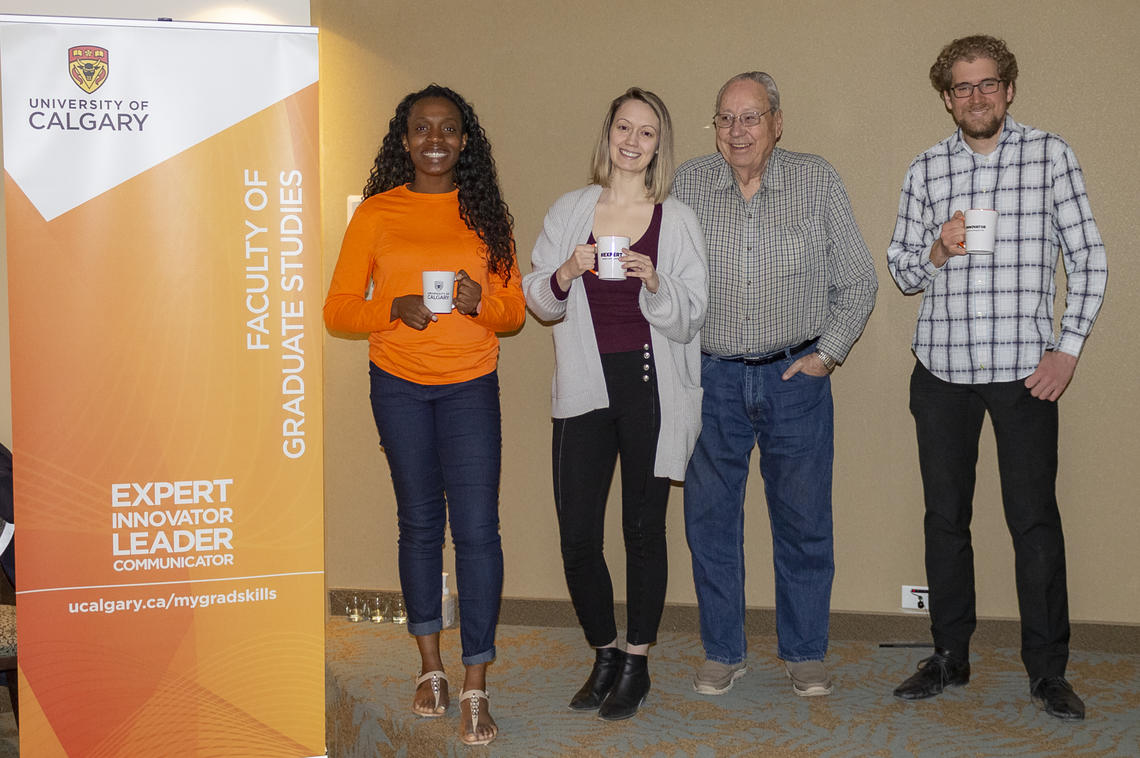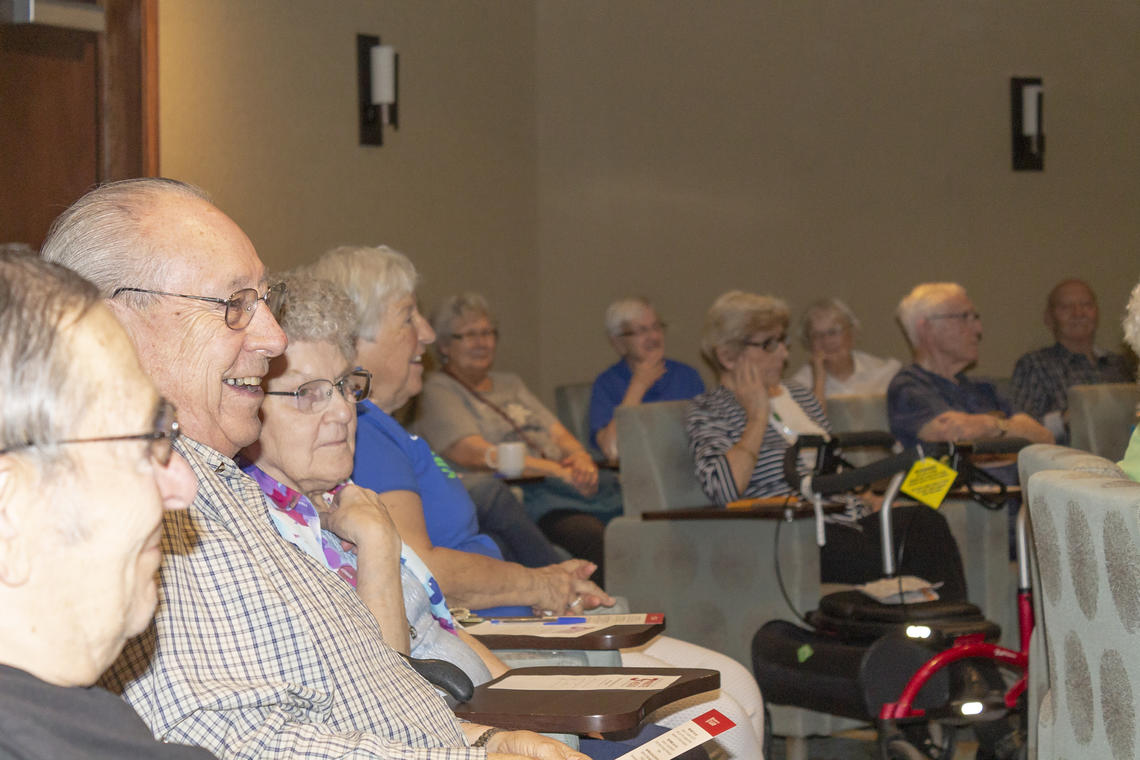
Anthonia Anowai, Carly Pontifex and Dante Bencivenga with Rocky Ridge resident Leon Root.
Faculty of Graduate Studies
May 2, 2019

Anthonia Anowai, Carly Pontifex and Dante Bencivenga with Rocky Ridge resident Leon Root.
Faculty of Graduate Studies
The world is changing rapidly, and University of Calgary graduate students are working in the vanguard of innovation.
That was the message as four graduate students shared stories of their research at the Rocky Ridge Retirement Community on Friday, April 26. Community resident Edith Schroeder summed it up: “To see what students are researching these days is like being able to see into the future. We can see what future generations will have to look forward to!”
Graduate students Carly Pontifex (neuroscience), Leah Ferrie (biomedical engineering), Anthonia Anowai (biochemistry) and Dante Bencivenga (computer science) are all veterans of the University of Calgary Three Minute Thesis (3MT) competition, in which participants deliver three-minute talks on their research for a general audience. The visit to Rocky Ridge gave these students an opportunity to find out how well their talks translate for a non-academic audience.
“When you aren’t on the clock, you can take your time to pause and improvise. It’s important to consider the background of the audience because there is the possibility of referencing something that might not connect with the audience’s life experience,” says Pontifex.

Residents of the Rocky Ridge Retirement Community enjoyed hearing graduate students speak.
Faculty of Graduate Studies
“I think it’s valuable for the audience to meet the people behind the innovations, and it’s incredibly valuable for graduate students to learn how to translate high-level subjects in a way that is both relatable and thought-provoking. So much of the work that we do is inaccessible to the wider public unless we actively try to reach out and take steps to make the information engaging and coherent.”
Bencivenga also found value in the experience of sharing his work in quantum computing — a daunting field for anyone outside of the discipline. “Being in theoretical computer science, a fairly abstract field, it can be quite challenging to explain what I do so that others can get the main idea,” says Bencivenga. “Outreach events are important so that we as researchers can better connect with people outside our usual academic connections, and so that the public can know what to expect from science and technology in the future.”
Lifelong learning is important to the staff and residents at Rocky Ridge, and the audience was excited to get an inside perspective on graduate student research.
“It’s an opportunity for us to think about futuristic things that we would never have thought of on our own,” says resident Leon Root. “There is lots going on in the world outside of our retirement community. We usually only get to hear about research like this on TV and in newspapers so I think it was really well received that we got to have the students here. I would like them to come back!”

Graduate student Leah Ferrie delivers her 3MT talk.
Faculty of Graduate Studies
Sharing graduate research with the community helps demystify graduate studies. “Outreach events like this put a human face on graduate school,” says Dr. Robin Yates, interim vice-provost and dean, graduate studies. “Graduate research plays a crucial role in our community. Students work to foster change and pursue new discoveries. It’s important for people to understand that graduate students are approachable, and that their work makes a difference for all of us.”
Initiatives like the 3MT help students learn to narrow the divide between the academy and the community. Delivering 3MT talks in the community shows how the value of hours spent rewriting and practising talks goes well beyond the official competition.
Sarah Miller, lifestyle manager at Rocky Ridge, captures the value of the 3MT talks from a community perspective. “Events like this are vitally important and invaluable for our residents. We have a particularly bright group of folks here at Rocky Ridge Retirement Community who are forever asking for the inclusion of more opportunities to learn on their busy activity schedules,” she says.
“No documentary, TED Talk, or video can ever compete with having live presenters. I definitely feel that the 3MT presentation is successful in bridging the gap between graduate research and our community. By and large everything was presented in a manner that allowed everyone to follow along, and if the concepts became too intricate to follow, amazement at the intelligence of these students took over.”